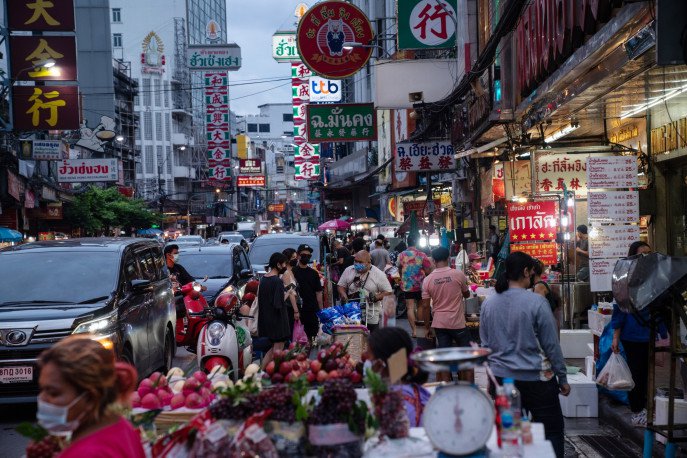
Category: General
Country: Bangladesh
Bangladeshi products have a huge potential market in Thailand. PHOTO: BLOOMBERG
By Pathik Hasan, last modified: 22 December, 2021, 01:39 pm
According to the Bangkok Post, Bangladesh has become the third largest trade partner of Thailand in south Asia. In 2018, the annual bilateral trade was worth $1.25 billion
Bangladesh has always viewed Thailand as a reliable and credible friend. Since our independence, both countries have enjoyed an amicable relationship. And as both countries share a regional platform like BIMSTEC, one would expect them to have a fruitful trade partnership.
The bilateral trade between these countries has grown in recent years, especially in the commodity market. In 2018 and 2019, Thailand held a four-day long trade fair at Dhaka. It was extremely fruitful as many Thai businesses, along with top Thai brands participated in it.
As a result, according to the Bangkok Post, Bangladesh has become the third largest trade partner of Thailand in south Asia. In 2018, the annual bilateral trade was worth $1.25 billion. That figure actually declined by almost 17% in 2019.
Both countries are now working on a free trade agreement to bolster trade. To address bilateral concerns, a joint trade commission (JTC) has been set up.
In its meetings, Bangladesh has been asked to increase its investments in Thailand. On the other hand, Thailand has agreed to increase Bangladeshi exports into the country.
Most of the bilateral trade has so far been dominated by Thai exports. For example, in the first 11 months of 2019, the value generated from trade was $980.41 million, $905.1 million of which was from Thai exports.
This figure includes the importation of electrical equipment, electronics, iron and steel, organic chemical products, cement, cereals, plastics and articles thereof, man-made staple fibres, sugar and sugar confectionery, machinery and mechanical appliances, cotton and cotton fabrics, synthetic fibre and cotton.
Meanwhile, Bangladesh mainly exports leather and leather products, medicines, marine fish and other animal products, paper and paper pulp, soap, articles of apparel, plastic products and rubber products, electrical & electronic equipment, made textile articles, products of animal origin, vegetable textile fibres, fish and crustaceans, etc.
Even though the country has sought Bangladeshi investment, there are not significant Thai investments in Bangladesh either. According to BEPZA and BEZA of Bangladesh, Bangladesh is building 100 free economic zones for foreign investors. It is also providing "one stop service" for foreign investors.
With the vast amount of economic and infrastructural development in the last decade, Bangladesh should now be a prime target for Thai investors.
To make our country more lucrative, the government is considering allocating land to establish a Special Economic Zone (SEZ) for Thailand.
Potential investors can also invest in energy production, regional connectivity and in the services sector of Bangladesh. Tourism is also suited for Thai investments, especially considering the expertise Thai investors would bring to Bangladesh's market.
Mutually beneficial terms must be included in the probable free trade agreement. Bangladesh has sought duty-free facilities for medicines, leather goods, jute and jute textile fabrics, textiles made of jute yarn, knitted and woven shirts, T-shirts, knitted garments, women's towels, cotton shirts from the Thai government.
China, India, Vietnam and Indonesia export huge quantities of garments to Thailand every year with duty-free facilities. As one of its most significant trade partners, Bangladesh should also get this benefit. It will also go a long way to reduce trade inequality between both countries.
Bangladesh is a rising economic powerhouse. It can serve as a potential hub for Thai trade with the larger south Asia region. The Matarbari deep seaport and Cox's Bazar airport will be crucial for increasing the connectivity between these two nations.
A mutually beneficial free trade agreement will not only galvanise both economies, it can also open doors previously unseen. Both countries must earnestly pursue economic cooperation to maintain the prosperity of both nations.
Disclaimer: The views and opinions expressed in this article are those of the authors and do not necessarily reflect the opinions and views of The Business Standard.
Courtesy: https://www.tbsnews.net/thoughts/economic-cooperation-between-bangladesh-and-thailand-can-unlock-new-potential-347329
Copyrights © 2025 GLOBAL TEXTILE SOURCE. All rights reserved.